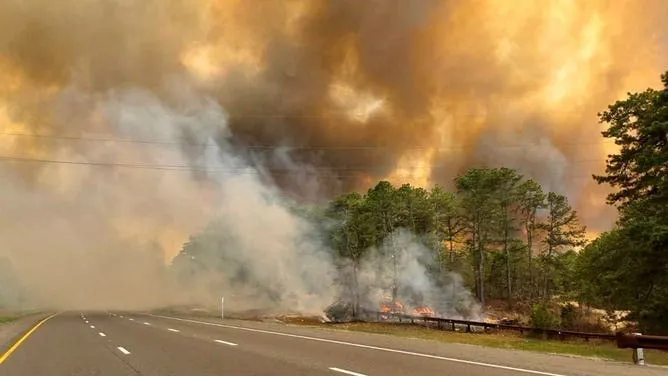
Wildfires are natural disasters that occur around the world and devastate all areas they encounter. They impact communities, homes, and habitats everywhere. Over the past few months, wildfires have increased significantly in New Jersey, causing substantial damage. These wildfires are the result of a drought. Droughts make the trees and grass much more flammable, allowing wildfires to spread quickly and start easily. Wildfires have devastated communities in the Passaic, Bergen, Ocean, Burlington, Camden, Gloucester, and Jackson counties, and the effects are burdening communities everywhere. Experts say the drought that has started these wildfires was caused by climate change. Global warming causes more water to be evaporated, leaving the land much drier than it should be. Additionally, the high temperatures New Jersey has been experiencing contributed to the quick spread of the fire. The number of fires in New Jersey has gone up 1,300% from this time last year.
How does this affect NJ residents? Although they have been able to keep the fires mostly contained, smoke will linger around all parts of the state, which leads to poor air quality. As of right now, the air quality is just below the threshold where health impacts could potentially become more serious. The current air quality is only threatening to those who are particularly sensitive to air pollution. Many people received warning notifications regarding the wildfires that informed everyone about the high risk of fire outside and urged all residents to follow the burn bans set in place. Residents can also help by conserving water to the best of their abilities if the drought continues and becomes more serious. This would significantly decrease the risk of wildfires as well as the risk of a potential drought emergency being declared.